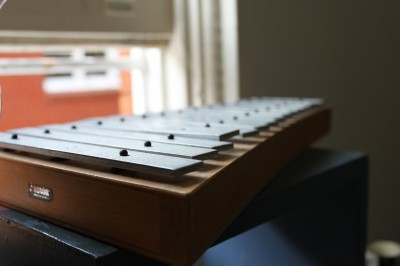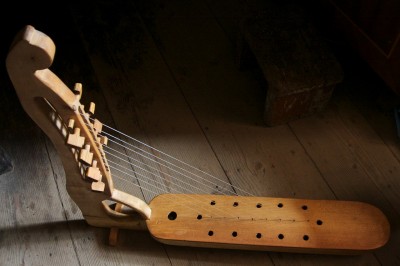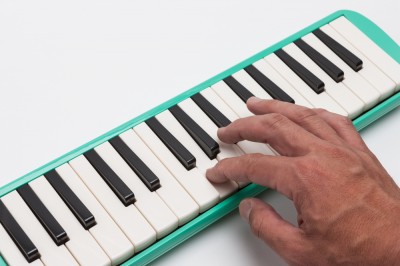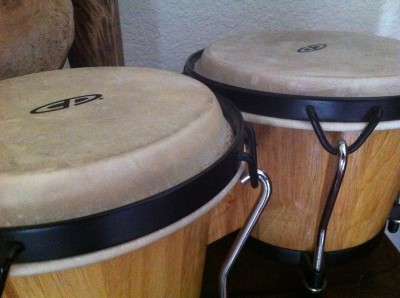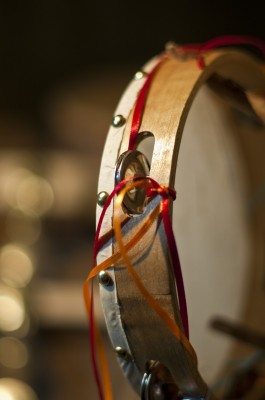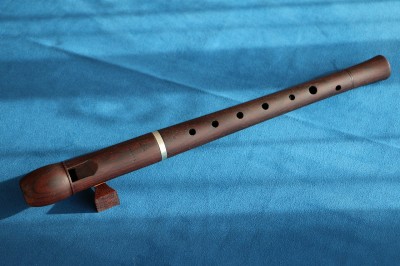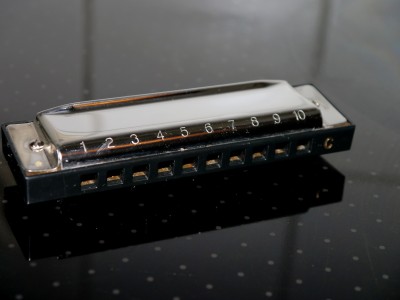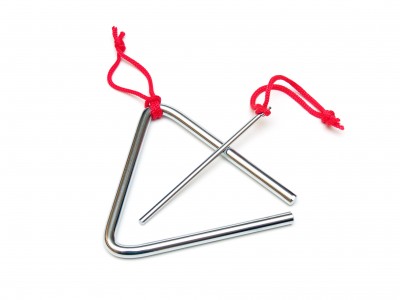Vocal Care Ten Commandments
by Ken Henson, Founder, The Bangalore Conservatory
For singers, vocalists and leaders who use their voice for communication, which certainly almost all of us, the care of the voice is essential to effective communication. There are some very basic principles for taking care of the voice. Some are obvious. Some are not so obvious.
The most common vocal pathology is called the voice nodule or node—a buildup of scar tissue on the vocal folds themselves. Nodes can be caused by a number of factors or behaviors. We will break them down into the Ten Commandments of Vocal Care.
1. Thou Shalt Not Yell
For soft-spoken CEOs this may seem like an unnecessary recommendation. But most of us undergo a strange transformation in the appropriate setting, a sports event, like a live cricket match or football game, or, for some, even seeing a friend we have not met for years. Others only require an overwhelming anger (maybe over a referee’s call you disagree with), or intense pain or interaction of some kind. The adrenaline kicks in; excitement takes over, and… Bam! Pow! Ouch! Waddayamean Foul!? The voice rises in pitch and volume and our normally calm, subdued communication becomes very loud. This may be fine if your life is made up of moving from one cubicle to another, chatting online, writing, or otherwise not speaking. But for the speaker or singer, yelling can be a disaster! You can actually do lasting, permanent damage to your voice with one bout of yelling (permanent in the sense that it will be with you for life unless you undergo surgery and some form of vocal therapy). So, just don’t yell.
2. Thou Shalt Relax
Your voice can actually be damaged simply by having too much strain over a period of time in the muscles which control your vocal production. Your voice must be relaxed in order to function properly.
F. Matthias Alexander was an actor who went to a number of doctors and specialists because his voice was always hoarse and in pain after an acting performance in a play. Sometimes he would cough up blood. No one could help him, and he finally helped himself by looking in the mirror and little-by-little, eliminating the strain he could see when he spoke. His vocal problems were solved just by relaxing. He developed the Alexander Method as a result of his experience.
Many voice problems can be solved with this simple dictum, Relax!
3. Thou Shalt Not Smoke
This may seem obvious, but some people do not realize the damage done to the voice by smoking. It is important to remember what smoking is—inhaling burning ashes. It should be obvious to everyone that doing such a thing can damage the voice over time. Add to this the contents of tobacco based cigarette or pipe or cigar smoke, which includes Nicotine (an insecticide), Cyanhydric Acid (used in the gas chambers by the Nazis in WWII, and in some biological weapons today), Acetone (a solvent), and dozens of other fatal chemicals, and you have a very effective mix for vocal damage (not-to-mention heart disease and cancer). The negative impact of second-hand smoke is well established. The best thing to do is just avoid smoking, or being around smoke entirely. If you work in an environment that ignore the laws in many countries against smoking in the work place, CHANGE JOBS.
4. Thou Shalt Avoid Glottal Plosives
A glottal plosive (sometimes called a glottal stop) is produced by the percussive closing of the gap between the vocal folds. In a gentle way you produce a glottal stop, or glottal plosive every time you say “uh-huh”, or any time you produce “fresh vowel”. A speaker or singer places the voice under excessive pressure to produce sounds louder than normal speech. Therefore the glottal plosive can be very dangerous during times of performance if not handled carefully. Vocal nodules can result. The smooth, or simultaneous attack, when the air and the vocal sound enter smoothly and together, is the best method to avoid the potentially destructive glottal plosive.
5. Thou Shalt Not Cough Nor Clear Your Throat
I know what you are thinking: “How can I decide not to cough?” The problem is a cough or clearing of the throat causes an extreme glottal plosive. The trick is to try to clear the blockage from your throat or bronchial tubes without engaging the voice. Like some people do in order to prepare to expectorate . .. you can force air through the system without making a vocalized sound.
Also, when you get an upper respiratory infection (after you have seen a doctor), you should use the cough syrup, which has both an expectorant and a cough suppressant. The expectorant helps your body clear the junk from your lungs. The cough suppressant helps you save your voice.
6. Thou Shalt Not Get Sick
The instrument you use to do your job (your voice) is inside of your body. The condition of your body affects your voice. You must prevent illnesses if you want to keep a performance schedule. The following is a brief list of illness prevention habits:
- Wash your hands often. Most respiratory illnesses are passed from one person to another via the hands.
- Get plenty of rest, about seven-and-a-half hours of sleep a night (see commandment seven).
- Eat a variety of whole foods (see commandment 8).
- Exercise—and not just vocal exercises (see commandment 9).
7. Thou Shalt Rest
If you are trying to lose fat and go on a strict diet and exercise plan, you will lose about fifty percent more fat if you sleep seven-and-a-half hours than if you sleep only six-and-a-half hours. If you are trying to gain muscle and have an eating and exercise plan you will gain fifty percent more muscle. Your immune system rebuilds that last hour of sleep. You are less likely to develop one of those URI’s described in Commandment Six if you get a good night of sleep.
Sleep is essential for brain health. Recent research indicates sleep and dream times are the opportunity for the brain to process experiences from the day, to clear out unhealthful chemicals from the stresses of the day, and to store memory and seek creative solutions to problems. It is in the seventh/eighth hour of sleep your body repairs itself from the damages created by normal living and environmental exposure. Your voice needs that recovery.
8. Thou Shalt Eat Well
I have read entire books that argue that carbohydrates are evil if you want to lose weight. I have read many more articles that indicate if you want to be strong and fit you HAVE to eat carbs. I have read articles that argue you should avoid fruit (carbs) but include veggies (more carbs). Others that argue you should avoid veggies and just eat fruit and nuts. I have read you should avoid meat, and also that you cannot have a balanced diet with sufficient protein without some lean meat. What is the truth with all of these contradictory claims? The truth is what your mother probably taught you:
• Eat your fruit and vegetables.
• Include good sources of protein like eggs (egg whites) and fish and lean meats.
• Eat often, like five times a day.
• Avoid eating the last hour or two before you sleep or before speaking/singing engagements or performances.
• About an hour or so before a performance, eat a good healthy snack.
• Have a little protein every time you eat.
• Avoid foods with processed or simple carbs.
• Avoid fried or fat-loaded foods.
• Avoid sweets, cakes, and processed biscuits.
• Never, or, at least, almost never, drink sugary soft drinks.
• Avoid juice, unless the whole fruit is thrown in (extra fiber to mitigate the sugar spike + vitamins).
• Include nuts, legumes and whole grains in your mix every day and, if possible, almost every meal and snack.
• Include low or non-fat dairy.
• Include good sources of protein like eggs (egg whites) and fish and lean meats.
• Eat often, like five times a day.
• Avoid eating the last hour or two before you sleep or before speaking/singing engagements or performances.
• About an hour or so before a performance, eat a good healthy snack.
• Have a little protein every time you eat.
• Avoid foods with processed or simple carbs.
• Avoid fried or fat-loaded foods.
• Avoid sweets, cakes, and processed biscuits.
• Never, or, at least, almost never, drink sugary soft drinks.
• Avoid juice, unless the whole fruit is thrown in (extra fiber to mitigate the sugar spike + vitamins).
• Include nuts, legumes and whole grains in your mix every day and, if possible, almost every meal and snack.
• Include low or non-fat dairy.
In order to maintain this eating plan, you may have to prepare your own meals and snacks and take them with you to work. So, do it!
9. Thou Shalt Exercise
I am not aware of any research-based evidence that connects exercise and vocal performance health. My experience has been that if I exercise on the day of a major performance, my voice is much more responsive than if I do not exercise. My over-all fitness level has an impact on how well I handle the energy output requirements of a long performance or speaking or teaching engagement.
Aerobics, high intensity interval training, walking, & weights, resistance training—probably all are necessary for optimal long-term health. Do your research before you start an exercise program, but START if you have not already. If you already exercise, study to make it as effective and efficient as possible. Choose a program that works for you and that you can stick with.
Exercise will improve your voice and help you endure the physical rigors of performance.
Exercise will improve your voice and help you endure the physical rigors of performance.
10. Thou Shalt Vocalize Daily
If your job requires you to speak every day, GREAT! If you have breaks when your voice is not used for official purposes, you must create situations and contexts in which you vocalize as would be required for a presentation to a large audience. Running through a set of vocal exercises, vocalizes, like “lips”, or making sounds like a siren with your voice, taking your voice through its full range of capacity at full volume, any variety of relaxed, wide-ranging vocal exercises will help you develop and maintain vocal health.
Think like an athlete. Your concert or meeting, or speaking engagement is like a marathon. You have to train for it. Train well.






